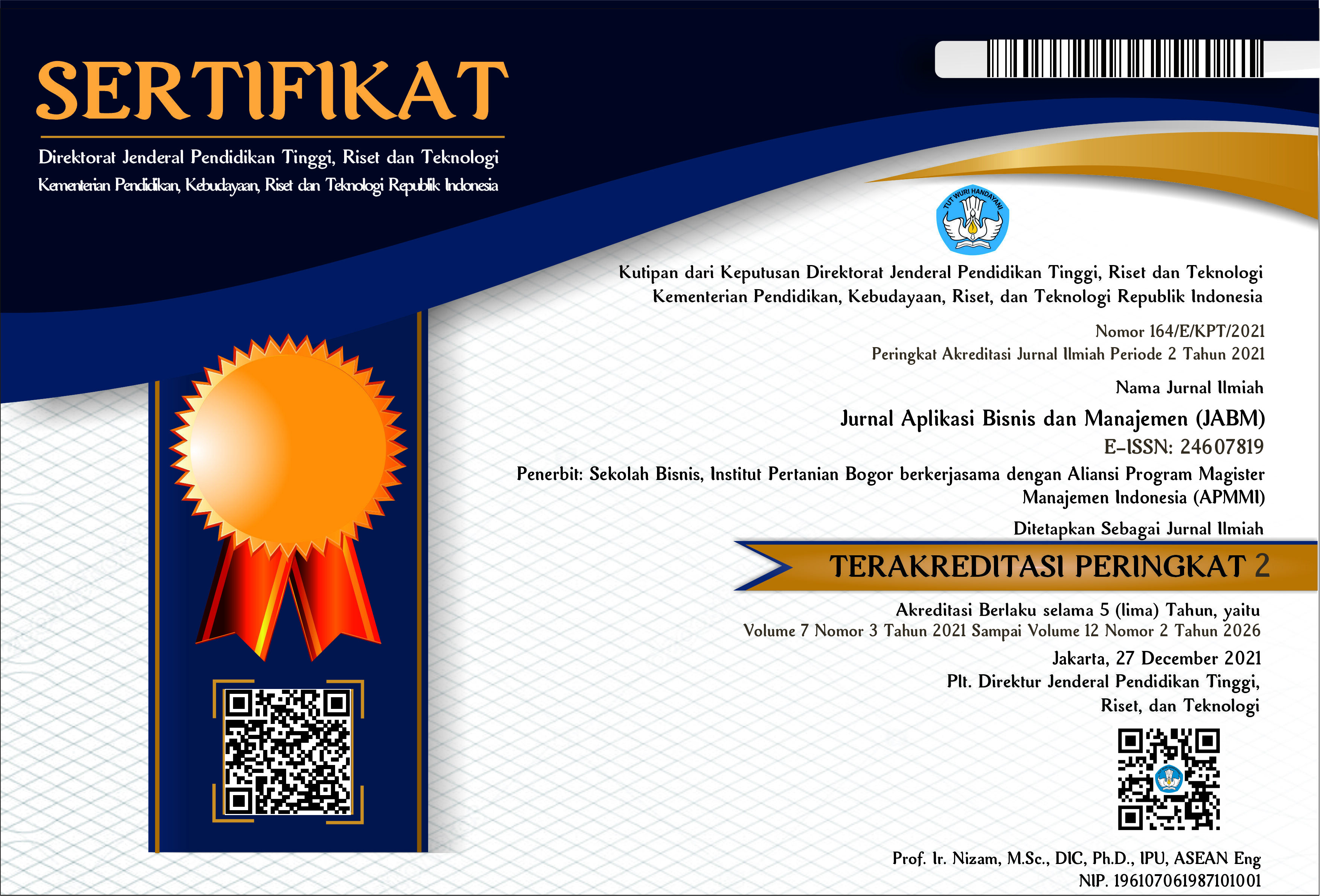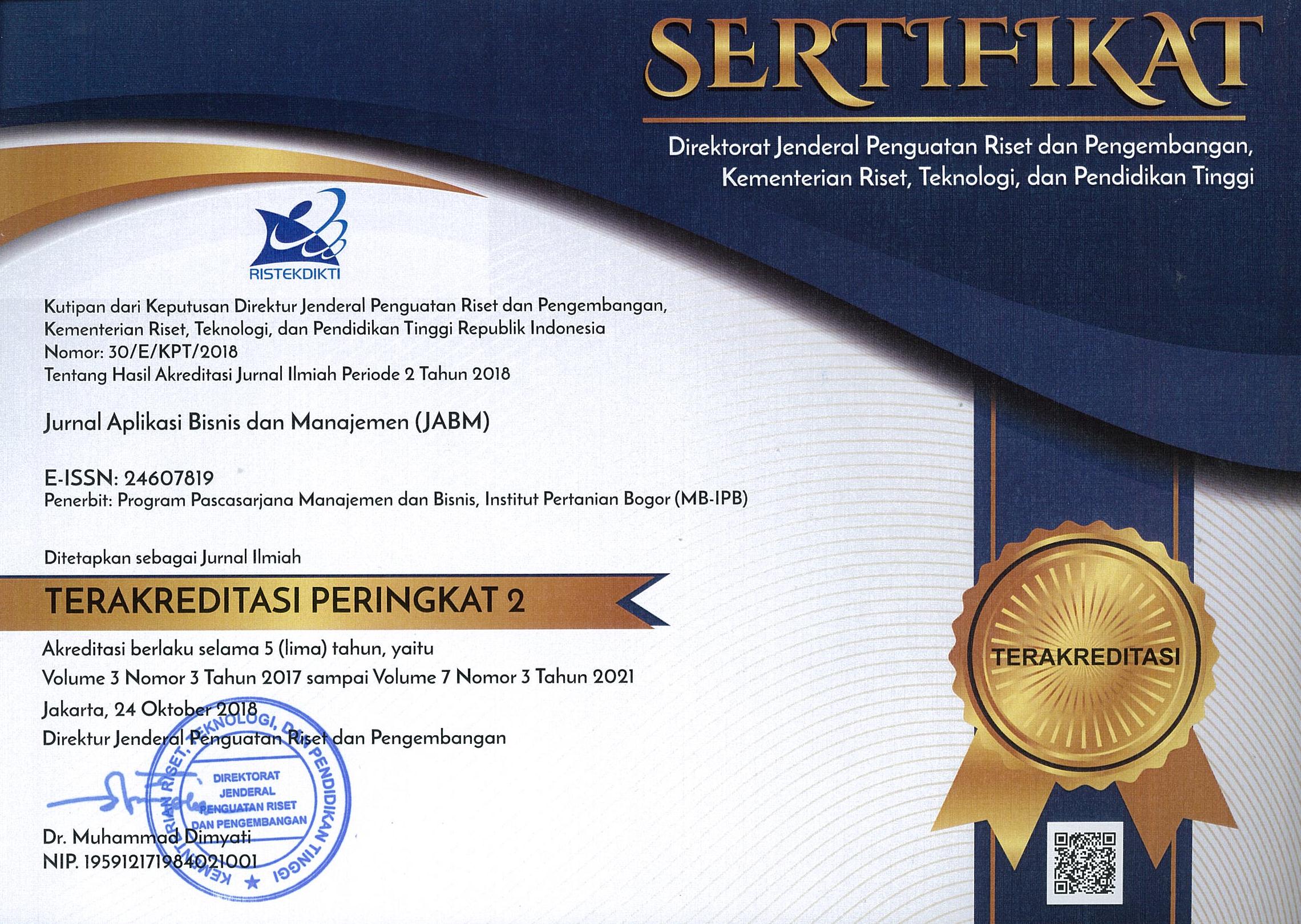Analisis Arus Kas Terkait Kebijakan Uang Kuliah Tunggal di Perguruan Tinggi Negeri Badan Hukum
Abstract
The aims of the research were to analyze cash flow and compare tuition income in a State University with Legal Entity of “XYZ” for its first year TPB students (the First Common Year) and of the first year until the fourth year before and after implementation of the single tuition fee system and formulate the management policies for the tuition income after the single tuition fee system. Analysis of cash flows consisted of cash ratio, quick ratio and current ratio. Paired t-test was used to analyze differences between single tuition fee income and non single tuition fee income. Based on the cash flow analysis, it is found that the University of “XYZ” has a liquid financial condition. The significant difference is, moreover, detected from the paired t-test analysis between single and non single tuition fee of total income from the first year student tuition. However, there is no difference detected when the analysis was conducted for total income from all four year tuitions. Management policies tuition income after the single tuition fee system payment delays should be minimized so that tuition fee funds can be completely collected. The allocation of fees to the faculty/department was originally based on the BPMP, and BPMK uses a tariff system so that cost per subject does not necessarily correspond with the needs. This is not in accordance with the single tuition fee system that is based on the unit cost. This means that the cost of the course is based on real needs, not based on the rates set.
Keywords: cash flow analysis, state university with legal entity, single tuition fee
ABSTRAK
Penelitian ini bertujuan menganalisis arus kas, mengkaji perbedaan penerimaan SPP S1 Reguler satu tahun pertama bagi mahasiswa TPB dan tahun pertama sampai tahun ke empat sebelum dan sesudah kebijakan UKT di PTN Badan Hukum “XYZ. Selanjutnmya, merumuskan kebijakan pengelolaan SPP S1 reguler sesudah UKT. Analisis arus kas terdiri dari rasio kas, rasio cepat, dan rasio lancar. Analisis perbedaan penerimaan SPP S1 sebelum dan sesudah kebijakan UKT menggunakan uji t sampel berpasangan. Hasil penelitian menunjukkan bahwa berdasarkan analisis rasio arus kas PTN Badan Hukum “XYZ” memiliki rasio kas yang likuid. Hasil analisis uji t sampel berpasangan menunjukkan bahwa total penerimaan SPP S1 satu tahun pertama (TPB) sebelum dan sesudah UKT berbeda nyata sedangkan total penerimaan SPP S1 dari tahun pertama hingga tahun ke empat sebelum dan sesudah UKT tidak berbeda nyata. Kebijakan pengelolaan SPP S1 reguler sesudah UKT sebaiknya penundaan pembayaran SPP diminimalisir agar dana SPP dapat terkumpul seutuhnya. Alokasi SPP ke fakultas/departemen semula berdasarkan BPMP dan BPMK menggunakan sistem tarif, sehingga biaya per mata kuliah belum tentu sesuai dengan kebutuhan. Hal ini tidak sesuai dengan sistem UKT yang didasarkan pada unit cost. Artinya, biaya mata kuliah didasarkan kepada kebutuhan riilnya, bukan berdasarkan tarif yang ditetapkan.
Kata kunci: analisis arus kas, perguruan tinggi negeri badan hukum, uang kuliah tunggal








